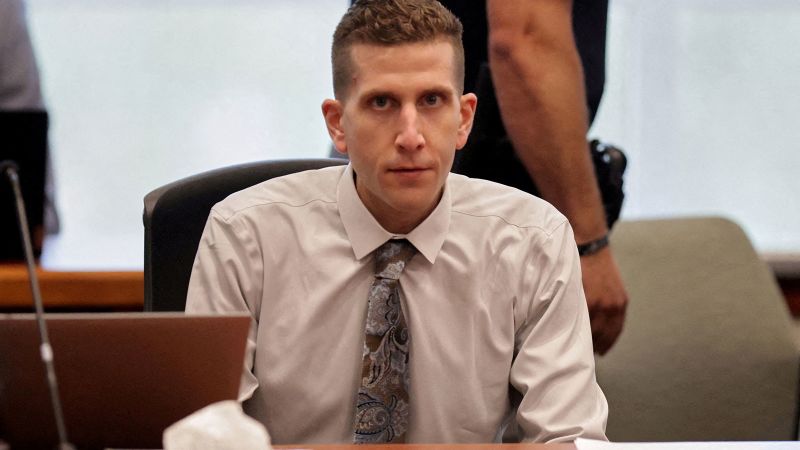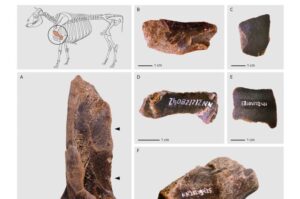
Bryan Kohberger, a former PhD student of criminology, appeared expressionless as he confessed to the murder of four Idaho college students during a court hearing on Wednesday. The courtroom in Boise, Idaho, was filled with the victims’ families as Kohberger admitted guilt to all charges, including four counts of first-degree murder and one count of burglary. This plea deal effectively removes the possibility of the death penalty, a significant development in the high-profile case.
The victims, Ethan Chapin, 20; Kaylee Goncalves, 21; Xana Kernodle, 20; and Madison Mogen, 21, were brutally stabbed in their Moscow, Idaho, home on November 13, 2022. Despite substantial evidence, including DNA found on a knife sheath, prosecutors opted for a plea deal, raising questions about their decision-making process.
The Case Against Kohberger
The evidence against Kohberger was compelling. Prosecutors presented DNA, surveillance footage, and cell phone data linking him to the crime scene. Yet, despite this strong case, they chose to negotiate a plea deal. According to legal experts, this decision might have been influenced by the potential costs of a lengthy trial, which would have been borne by Latah County.
Jean Casarez, a CNN trial correspondent, noted, “This was a very solid case, and the defense had lost so much—they were not going to be able to present an alibi.” The trial’s relocation to Boise aimed to ensure fairness, but the financial implications for the county could not be ignored.
The Plea Deal and Its Implications
The plea deal, which spares Kohberger from the death penalty, has sparked mixed reactions. His defense attorneys argued that his autism should be considered in the sentencing, pushing for life imprisonment without parole. This strategy mirrors the 2003 case of serial killer Gary Ridgway, who avoided the death penalty by providing information on his other victims.
However, unlike Ridgway’s deal, Kohberger’s agreement comes with no conditions. This lack of closure frustrates some victims’ families, who feel deprived of answers to critical questions about the motive and circumstances of the murders.
“One of the issues with several of the families is that this was just too easy,” said Casarez. “They wanted answers.”
Emotional Reactions and Family Perspectives
The courtroom was tense and silent as Kohberger admitted his guilt. Family members of the victims displayed a range of emotions, from silent tears to visible frustration. Kaylee Goncalves’ father expressed deep dissatisfaction, feeling that the victims’ lives were overshadowed by the plea deal’s expediency.
Meanwhile, the family of Madison Mogen viewed the plea as a form of closure, though Xana Kernodle’s father disagreed, stating they would never truly know the truth. The absence of Kohberger’s family in the courtroom was notable, given their previous support during pre-trial hearings.
Next Steps and Future Implications
With Kohberger’s sentencing scheduled for July 23, the court will lift the gag order that has restricted public discussion of the case. This will allow the families and legal teams to speak openly. The sentencing will feature victim impact statements, providing a platform for the families to express their grief and seek some semblance of justice.
As the legal process concludes, questions linger about the plea deal’s rapid execution and the lack of detailed confessions from Kohberger. The Goncalves and Kernodle families have criticized the prosecutors for not securing more information about the crime’s specifics.
“It’s stunning that when Kohberger was posed the questions with their names… he responded, ‘yes.’ No emotion at all,” observed Casarez.
While Kohberger has waived his right to appeal, the case’s swift resolution and the unanswered questions continue to weigh heavily on the victims’ families and the broader community. The plea deal, while legally sound, leaves a complex legacy of justice and unresolved grief.





